The government has confirmed that Harland & Wolff’s capacity to contribute to Royal Navy shipbuilding was assessed before the Fleet Solid Support (FSS) contract was awarded, according to a written answer in the House of Lords on 1 October.
Baroness Ritchie of Downpatrick asked what assessment had been made of the Belfast yard’s ability to construct warships.
Responding, Defence Minister Lord Coaker said the FSS competition was designed to ensure British shipbuilders could play a central role, with the award ultimately going to Navantia UK, which included Harland & Wolff as a strategic subcontractor.
Lord Coaker stated:
“The build strategy was, and remains, that all three ships will be assembled from blocks manufactured in H&W’s shipyards in the UK and Navantia’s shipyards in Spain. Final assembly, systems integration and testing of the ships is planned to take place in Belfast.”
He added that the programme required around £100 million of investment in the Belfast yard to recapitalise facilities and transfer skills and technology. The Ministry of Defence concluded that Harland & Wolff was capable of meeting its responsibilities, with Navantia UK responsible for managing subcontractors under the prime contract.
Since Harland & Wolff’s insolvency earlier this year, Navantia UK has taken over its four shipyards. Coaker noted that work to modernise the Belfast yard has now resumed, strengthening UK capacity and productivity in naval construction.


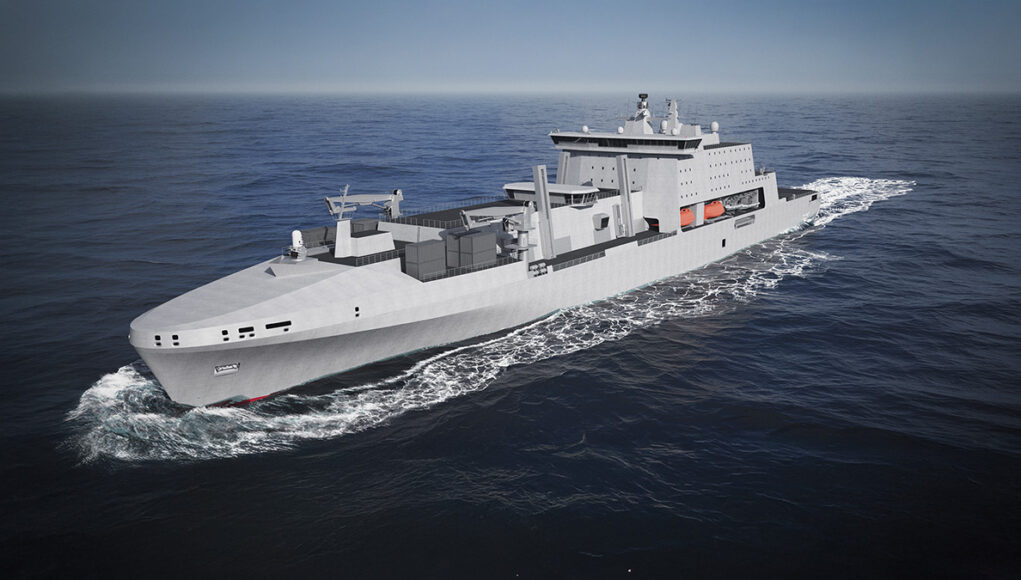
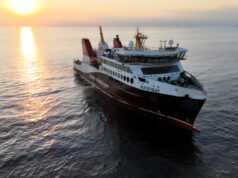

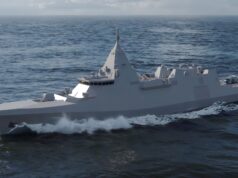
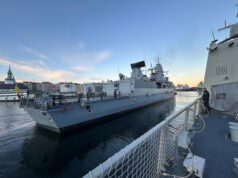


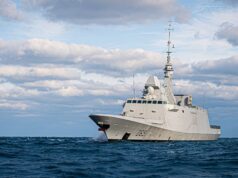

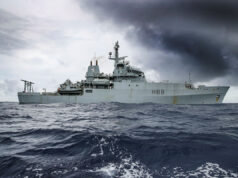
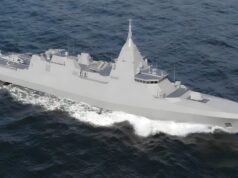

How many other options were there ?
Lego apparently pulled out of the competition.
Lego ships would be much easier to repair.
I don’t think their blocks were using British Steel so correct decision in my view.
False choices
“I DON’T WANT MORE CHOICE, I JUST WANT NICER THINGS”
I think RN just need ships…
Now all they need are enough crews for
4 x Tides
3 x Bays
3 x Solid Stores
1 x Argus – if she ever gets fixed
As they are struggling to crew 2 Tides and 1 Bay I’m not quite sure how this plays….but RFA will have a lot of very large very shiny ships soon.
In this case the Ab Fab “nicer things” is an analogy for more ships..less choices more floaty boats with sailors on.😂
Crewing is a big concern for the RFA and has been for years as we have discussed many times. Healey did gave the RFA an improve pay ans conditions offer earlier this year. 6.5% plus £750 back pay consolidated into salaries, option to cash in voyage leave, travel vouchers and short assignments. Quite a generous deal compared to how they were previously treated. However, we won’t find out until sometime next year numbers in the RFA have improved as the MoD only does a biannual review of head count. 2022 numbers were 1,747 with 1,656 in 2024 so numbers were still falling probably right up until the pay deal was signed. Depends on whether the pay deal was enough to give hope to the crews that things were really turning around.
Lets face it things really need to turn around as the RFA is now relying on RN people to make up specialist roles in the RFA and the RN is stretched for people as well. So a marked improvement for the RFA would also help the RN…
We have sunk to a really low level across the board, I just hope things are finally turning around, or else…
Cheers CR
PS Info from Google AI search, but it looks about right..?
Re the crewing it’s an interesting one, but essentially argue and the bays are on the slippy slope to sunseting and then the RFA will be out of the amphibious game as the RN takes over the whole show with all commissioning MRSS. So in the 2030s they are only going to need to crew 4 tides and 3 solid stores ships.. although I have a sneaking suspicion that the plan would be for the replacements for the Points to be more more focused logistics vessels ( with more of a capability to deliver in austere surroundings ) and operated by the RFA.
If you look through Strategic Sealift – Future (SSL-F) Request For Information (RFI 051) –
713788451 it’s not really focused at all on the present model of privately owned and operated, infact that is only one of four of the options 1) vessel owned and operated by the mod, 2) vessel owned by the MOD and privately operated, 3) owned by a private entity and operated by the MOD, 4) privately owned and operated ( the present model ).
They are also looking at new build options or conversion options
Within the requirements of the ships they have also included the requirement to accept weapons and protective systems as well as have enhanced survivability and be able to operate in all maritime environments from the artic to the tropics as well as operate effectively in the littoral environment, including a ice hardened hull (A1 so 80cms of ice)
They want it to have main bow ramp a stern ramp and side ramps all able to offload onto mexeflote as well as ballast trimming outside of normal parameters to allow direct ramp offloading onto mexeflotes as well as having its own crane. That’s essentially an out of port capability.
To me this smells like they want to replace Points with a proper auxiliary..
It smells like turning the Points into Bay+ and Bays in MRSS frigatey hybrid nonsense….
Which smells very expensive to me.
But there is a Green Lid in charge so that may be a budget focus!
Nothing wrong with a green lid!
Nothing at al!
Interesting take Jonathan,
It looks a lot like mission / requirements creep to me..! Ok it might look like a good [political] way around the issues faced by the amphib capability but it could lead to cost overruns and timescale slippages, i.e. the kind of debacles we have seen all too often in the past. Same old, same old – and is doesn’t work.
What the MoD and services need to understand is that a good dose of honesty / realism across the board will in the medium to long term pay off with projects more likely to come in on time and cost because the initial estimates were a damn site closer to reality than the present fairy tales that get spread… As such we will get to deliver what we promise when we promise which can go along way to off setting the apparent higher initial costs, especially if follow on unit costs demonstrably come down as well i.e. T26…
Cheers CR
What happened with mechano
Their bid was full of holes.
😁😁😁😁
Brilliant!
Plus it is now a French owned company so their bid did not qualify under warship construction rules… 🙂
Canadian, but I’ve got a couple of original sets made in England available at an inflated price…..
I think Navantia has the expertise to get H&W up and running however longer term does Navantia want more competition in the European ship building space?
Navantia was had to upskill H&W even before they bought it, it was baked into the original contract. Now just going to cost the tax payer more to do the same. The whole saga is a bad joke luckily for the government public focus has been on their incompetency in other areas:)
I guess Navantia’s calculation is that if they build up capability (and thus jobs) then UK government will have to find ways keep it busy. H&W previous owners did a canny job of acquiring yards in different regions, for maximum political effect.
It looks like there is strong pipeline for the foreseeable, with MRSS etc. the question IMO is more if the UK can sustain three large, modernized and efficient yards in the longer term. There is a danger that this ends up like UK train building, where we now have too much capacity.
Most the analysis earlier this year was highly skepticle about H&Ws ability to deliver the program, so I hope there’s been dramatic improvements. Last thing we need is long overdue capability replacment suffering more delays whn we’r on the brink of major conflict.
With reference to crewing these auxilliaries.i think most of today’s youngsters haven’t a clue what the rfa is.we all know thephrases ,army be the best ,was born here there and everywhere ,but made in the royal navy.when was the last time anyone saw a recruiting advert for the rfa.as for short deployments surely if you opt for a maritime career you would want to see the world!.